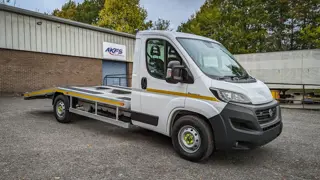Author: Philip Harmer is a partner at Stormcatcher Motor Industry Lawyers. He is a practising lawyer, author and speaker on all aspects of employment, commercial and motor trade law.
According to many franchised car dealers, dealing in commercial vehicles is easy work compared to dealing with consumers, it’s wham bam, sold that van.
This is founded on the misconceptions that commercial vehicle buyers aren’t as fickle as the general public, only buying when and what they need and that they are outside the realms of “consumer law.”
In reality of course, whether selling a car or van, buyers are all susceptible to the vagaries of human nature and also subject to both the Sale of Goods Act 1979 and the Supply of Goods & Services Act 1982.
More pressingly and hitherto disregarded by dealers, is the advent of the new Consumer Rights Act in October, which affirms the position set out in the case R & B Customs Brokers v United Dominions Trust Ltd (1988).
Here the common notion that business to business (B2B) transactions are automatically excluded, is dispelled, along with the classification of a consumer as being a “person acting wholly or mainly outside their trade, business, craft or profession.”
The purpose of the new law is to help counter the imbalance of information and potential influence a professional retailer has over a buyer not engaged in that industry with clearer prescribed and expedited remedies for breach of contract.
As a result it stands to reason that a green grocer for example, with incidental or no knowledge and experience (“a consumer”) cannot be expected to be on equal terms when buying a van from a commercial dealer.
Naturally, unlike a pure consumer purchase, where the applicability of the new law is uncontested, each B2B transaction turns on its own specific facts and won’t be determined purely on regularity of purchases.
Paragraph 2(4) of the new law makes it clear that the burden of proof for business buyers seeking to rely on the consumer rights act lies firmly with them, following the maxim “he who asserts must prove.”
Nevertheless, dealers should tread carefully, as beyond the fundamental buyers’ remedies is the enforced publication of prosecutions on the offending dealer’s website and other social media, the ‘name and shame’ game.
Exercising short term right to reject (within 30 days), right to repair or replacement and right to a price reduction or the final right to reject may then seem the cheaper option, rather than facing the wrath of public opinion.





















L. Marino - 28/07/2017 12:23
So, the rules governing a vehicle (eg a small van) sold "Spares & Repair" apply only if the purchaser is a 'private individual' but can be ignored if buyer is 'In Business' - clarification is hard to access.